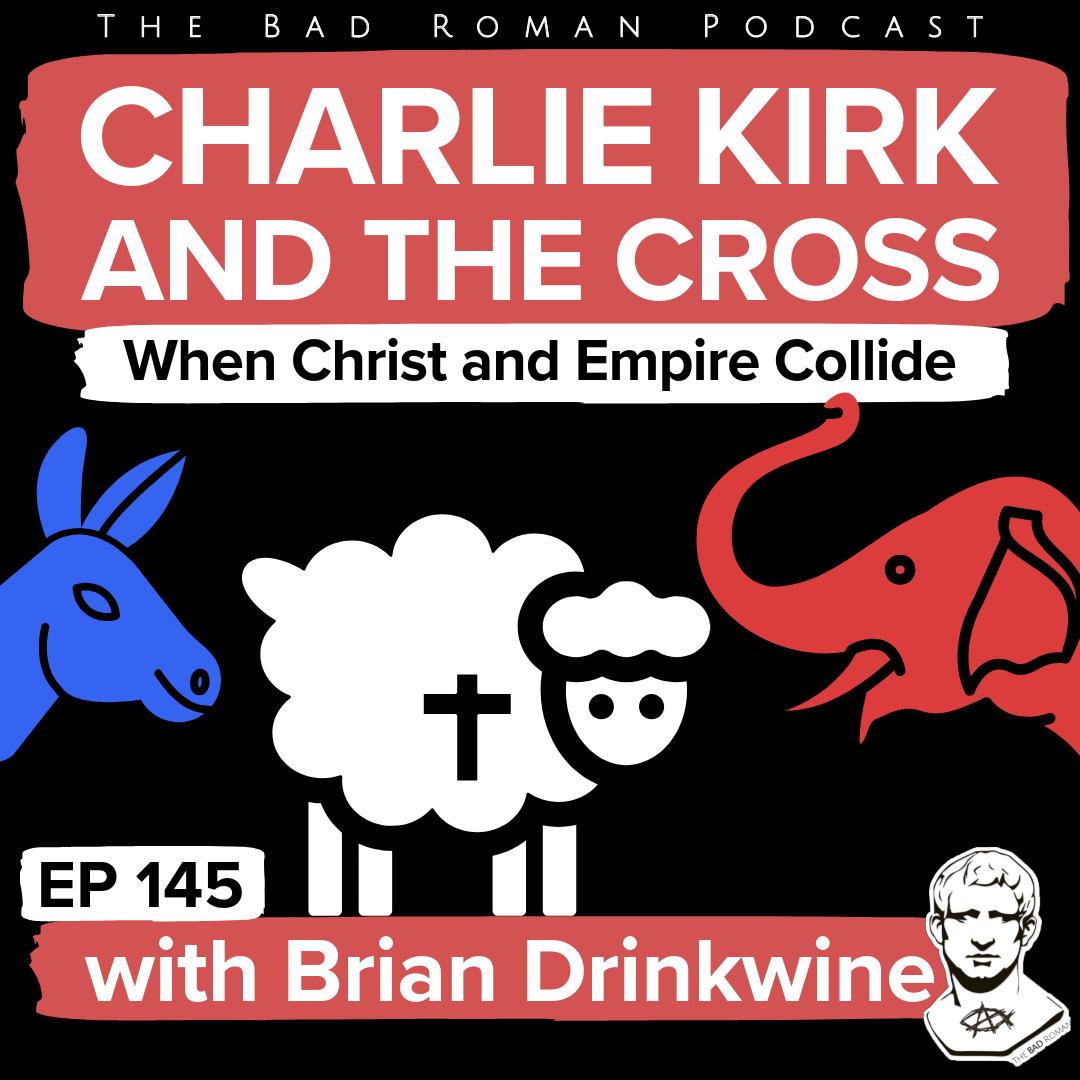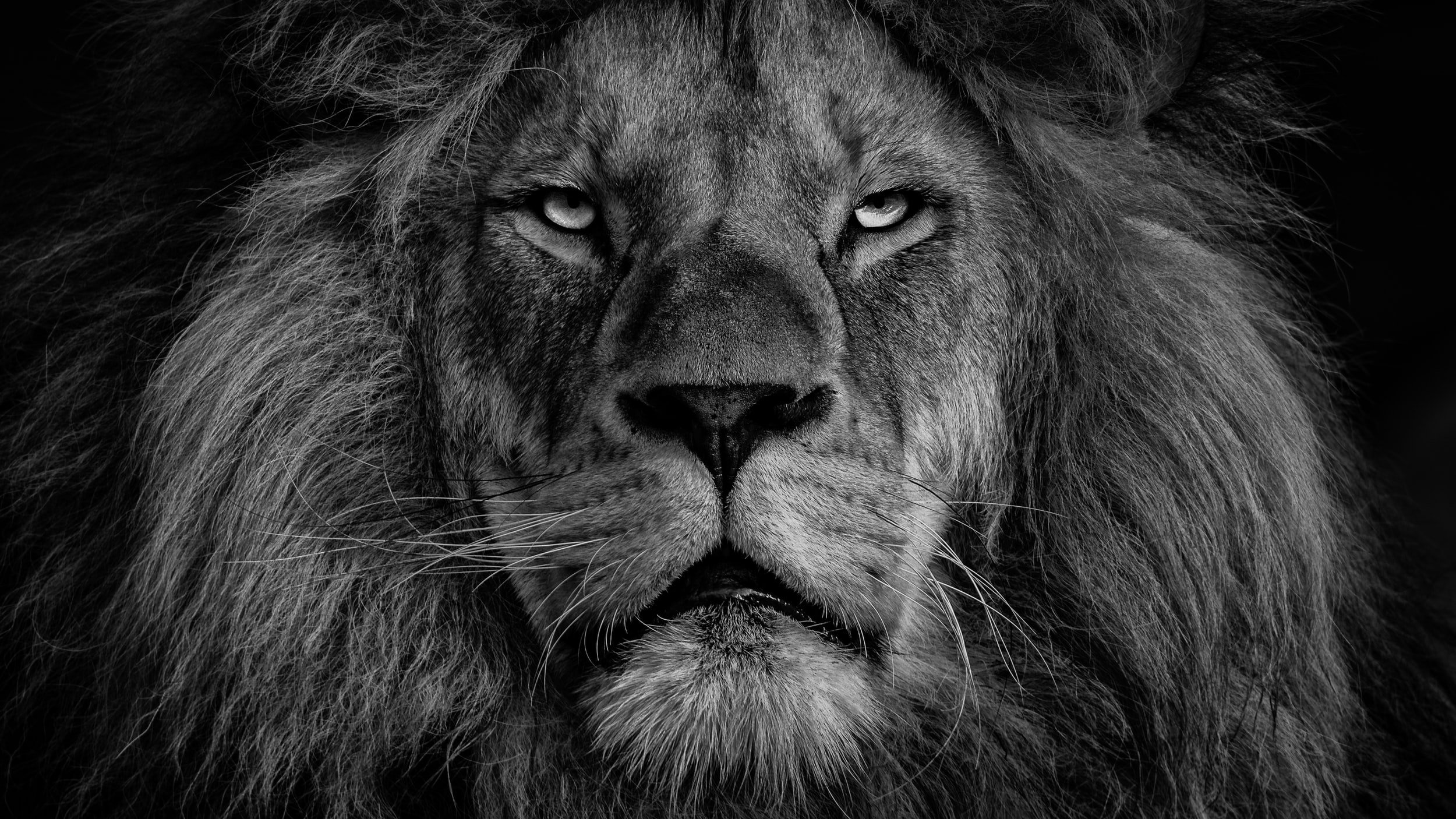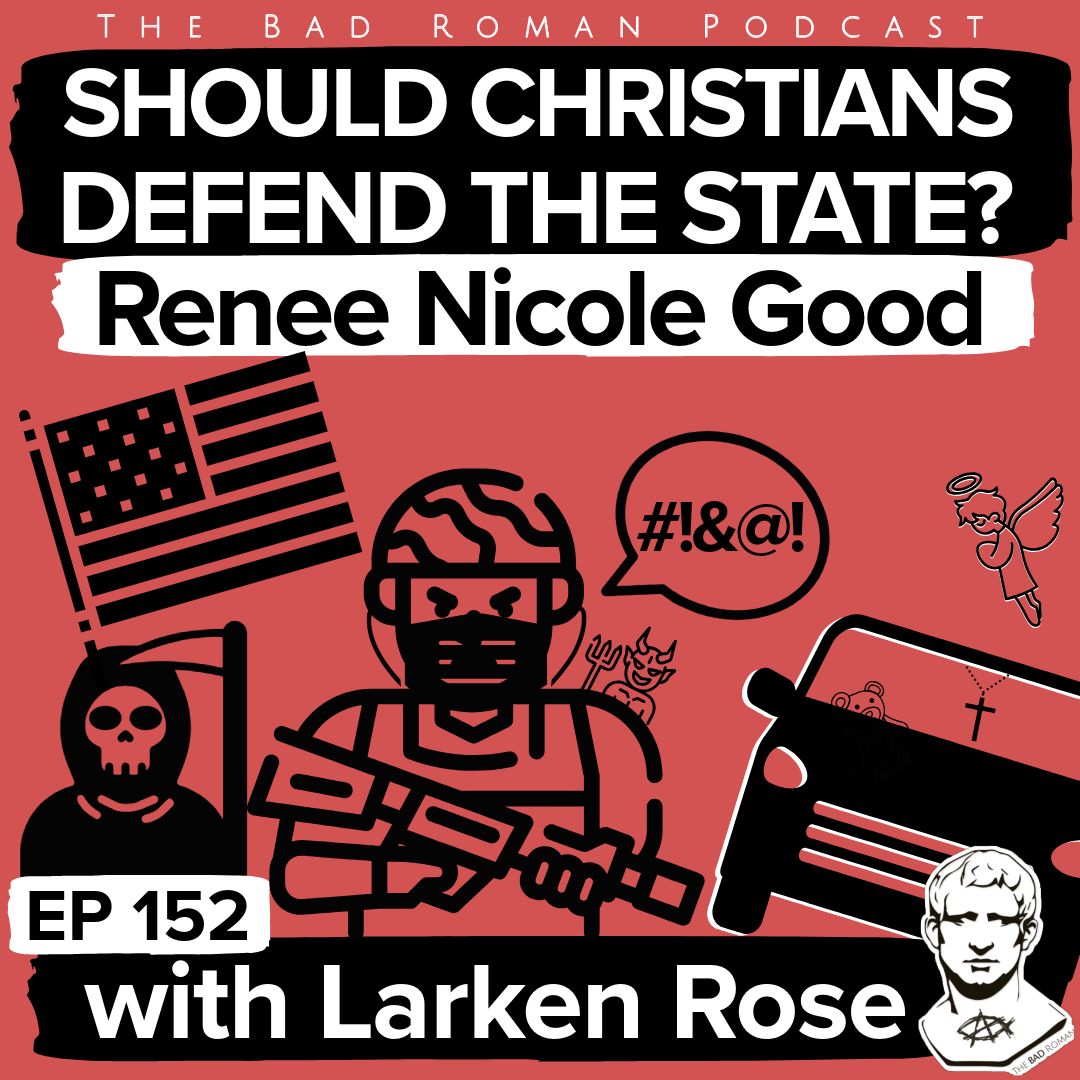After Charlie Kirk’s tragic death, a deeper conversation has surfaced about the growing entanglement of Christianity and politics.
This episode of The Bad Roman Podcast steps into that tension and explores what happens when the Church trades the cross for a campaign.
Our guest, Brian Drinkwine, is a pastor and church planter who has walked that road himself. He went from a passionate political believer to a follower of Christ learning to question the marriage between faith and power. His viral post about Charlie Kirk’s memorial service sparked a national conversation and revealed how uneasy many Christians feel about the blending of faith and political ideology.
The Malaise of Modern Christianity
There is a growing discomfort in the Church, a spiritual restlessness that Brian calls malaise. Many believers sense that something is wrong, even if they cannot explain it.
This episode gives language to that unease and helps people who feel out of place in modern Christianity find words for what they feel.
“You’re not crazy,” Brian says to those who feel out of step. “You saw this and thought, something’s not right. You chose to give your allegiance to Jesus alone. That should be celebrated, not condemned.”
That is the heartbeat of The Bad Roman: No King but Christ.
It is not a slogan but a return to the simplicity and power of early Christianity.
The Danger of Political Allegiance
One of the clearest insights from this conversation is that political parties often act like religions.
Each one has its own sacred texts, rituals, and values. For some, the Constitution becomes scripture. Voting becomes a sacrament. Party leaders become prophets.
When Christians give their ultimate loyalty to these political “religions,” they risk betraying the Kingdom of God.
“We cannot serve both God and Mammon,” Brian reminds us. “And sometimes, political power becomes the new Mammon.”
This is not theory. It is a call to honest reflection.
Have we allowed our politics to shape our faith more than the teachings of Jesus?
Reframing Faith and Politics
Throughout the episode, Brian and Craig invite listeners to rethink what it means to follow Jesus in a politically divided world.
Patriotism vs. Nationalism: It is good to appreciate your country. But when love of nation becomes ultimate loyalty, it becomes idolatry.
The Narrow Path: Following Jesus is not about finding middle ground. It is about choosing a completely different way. The Kingdom of God is not found on the right or the left. It is found on the narrow road of Christ.
Repentance as Revolution: The word metanoia means a complete change of mind. It is not about guilt but about turning back to Jesus as King.
The Power of Forgiveness: The difference between Erica Kirk’s forgiveness and the calls for revenge at the memorial shows what Kingdom love really looks like.
Practical Steps for Realignment
If your faith feels tangled up in politics, Brian offers a few ways to begin untangling it.
Take a “politics fast.” Step away from political media and spend time in the Gospels instead.
Simplify your faith. Start again with the basics, like the Sermon on the Mount.
Check your allegiances. Ask yourself, “If loving others like Jesus meant losing my party loyalty, could I do it?”
Speak prophetically. True patriotism tells the truth, even when it is uncomfortable.
What This Teaches Us About Faith and Politics
This conversation is a mirror for all of us who have ever mixed our love for Jesus with our loyalty to empire. It reminds us that our mission is not political victory but faithfulness to Christ.
In a world divided by tribalism, allegiance to Jesus is the most countercultural thing we can offer.
“On the other side of my political allegiance,” Brian says, “when I gave that up and fully gave myself to Jesus, it is just a better life.”
So where does your allegiance really lie?
Are you ready to walk away from the noise and return to the way of Jesus?
The Kingdom still calls.
No King but Christ.
🤝Connect with Brian Drinkwine:
Email: brian@briandrinkwine.com
Website: https://briandrinkwine.com/
Ministry at Breakthrough Church
Episode Timestamps:
(0:22) Discussing reactions to Charlie Kirk's death
Brian Drinkwine joins to discuss varied reactions to Kirk's passing
Read Brains post here
Examining potential blurred lines due to nationalism
Questioning if some churches have lost focus on "no king but Jesus"
(0:48) Brian Drinkwine's background
Grew up in Nashville, Tennessee in independent fundamental Baptist tradition
Transitioned to Southern Baptist church and found faith at youth camp
Experience in youth ministry and church planting
(4:09) The viral post about Charlie Kirk
Origin of Drinkwine's post addressing the tragedy
Unexpected widespread response and impact
Dealing with the flood of messages and notifications
(10:45) Addressing the church's response
Preparing a message to bring the congregation together
Importance of uniting around Jesus rather than political parties
Transcribing and adapting the message for social media
(23:52) Reflections on the memorial service
Conflicting emotions during Charlie Kirk's memorial
Redeeming moments and problematic statements
Struggle with nationalistic undertones in Christian spaces
(29:19) The danger of political allegiance
Exploring the concept of allegiance in faith and politics
Matthew Bates' book "Salvation by Allegiance Alone"
Warning against getting sucked back into allegiance to empire
(35:32) Early church perspective on empire
Examining how early Christians responded to empire
Importance of studying church fathers like Tertullian
Unpopularity of this view in mainstream churches
(41:34) The malaise in modern Christianity
Growing sense of unease among followers of Jesus
Need to return to Jesus as the solution
Importance of simplifying faith and focusing on basic teachings
(54:46) Christian nationalism and its impact
Difference between patriotism and nationalism
Danger of giving full allegiance to political parties
Need for a prophetic voice while appreciating one's country
(1:06:56) Tools for self-reflection
Developing a breakdown of political parties and Jesus as rival religions
Creating a 10-point checklist for assessing political engagement
Importance of distinguishing between political identity and identity in Christ
(1:17:34) Conclusion and future discussions
Potential follow-up episode on political parties and Jesus as religions
Invitation for listeners to engage in dialogue
Plans for online community discussions on these issues

















